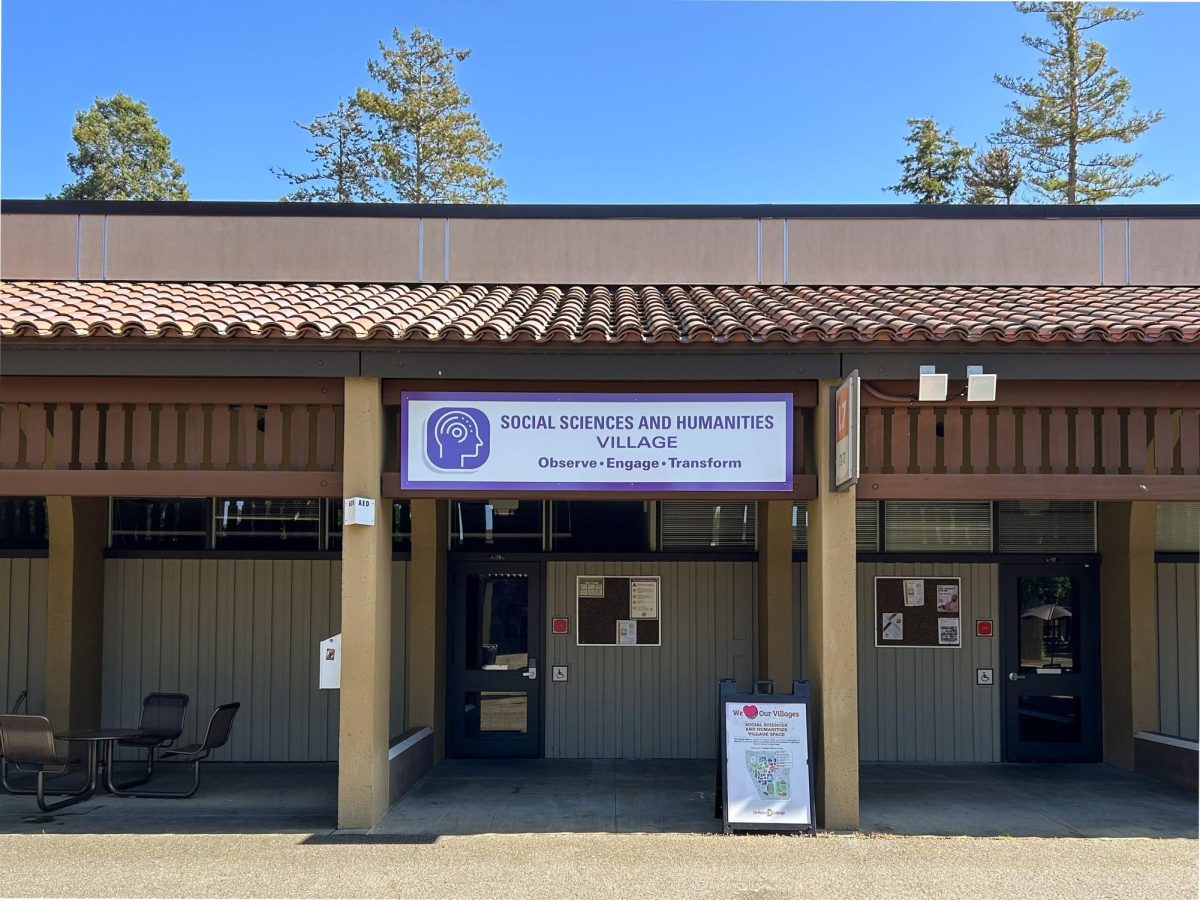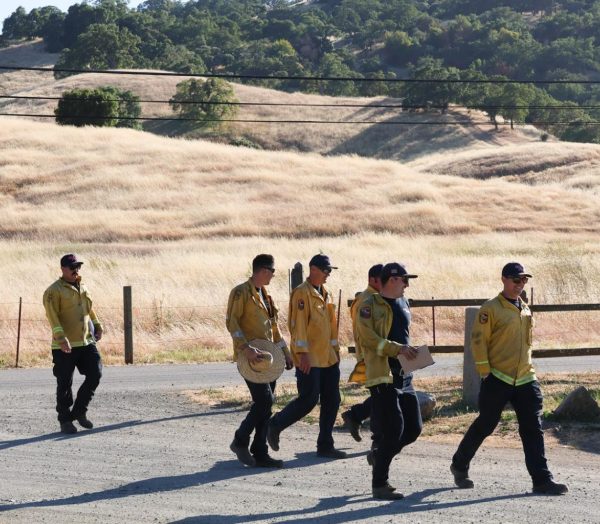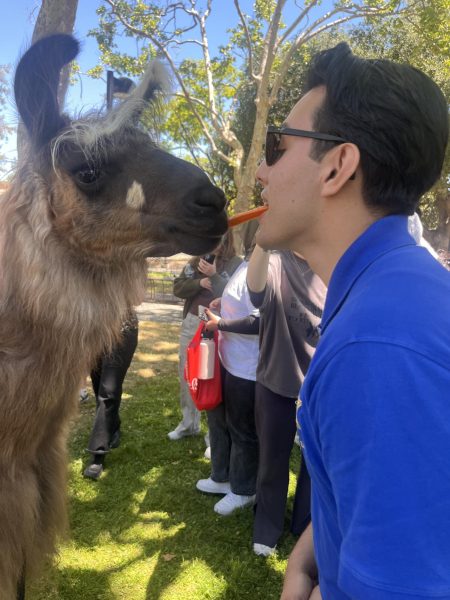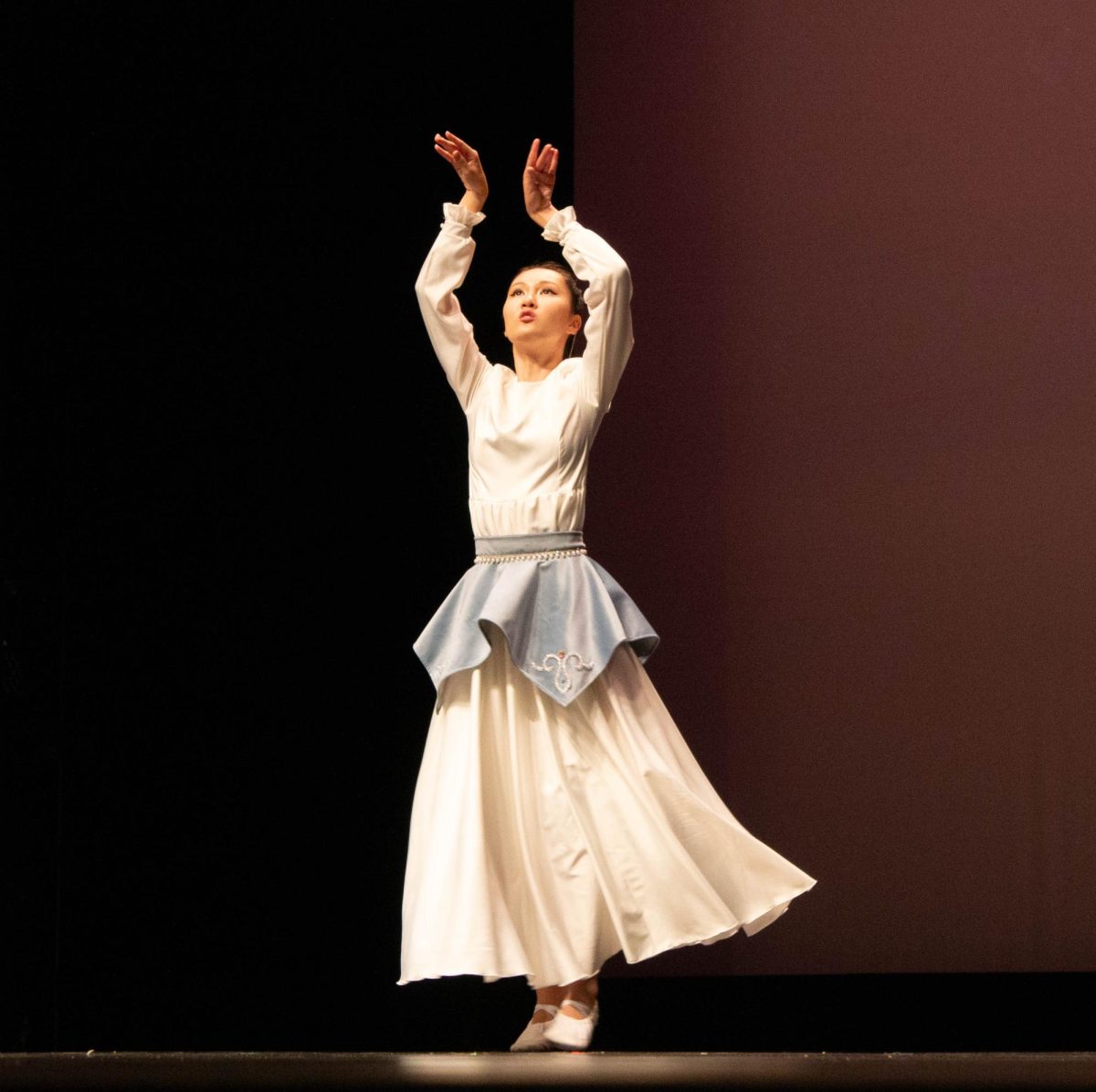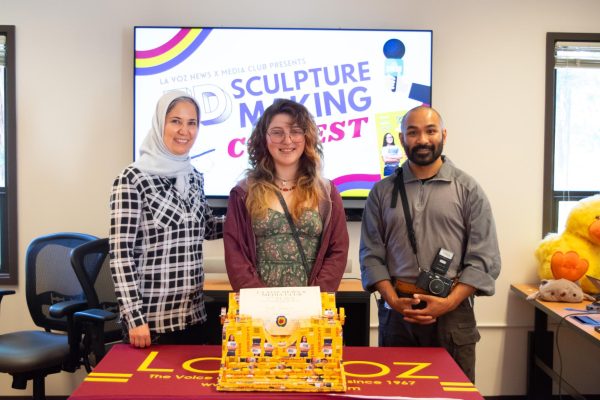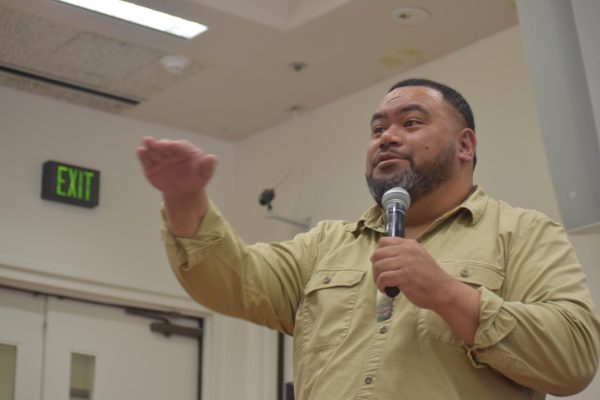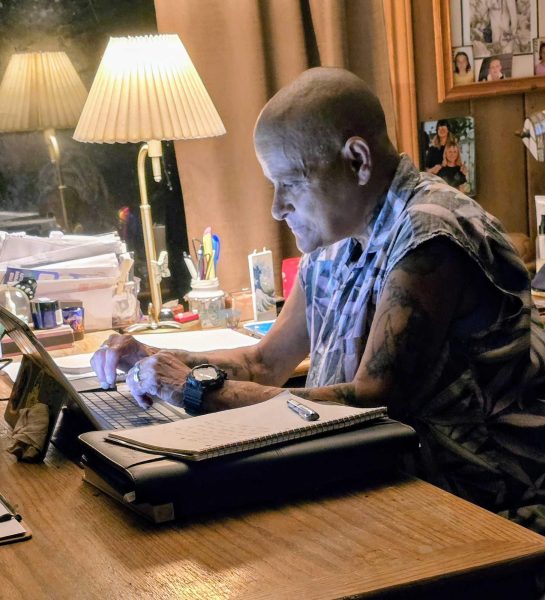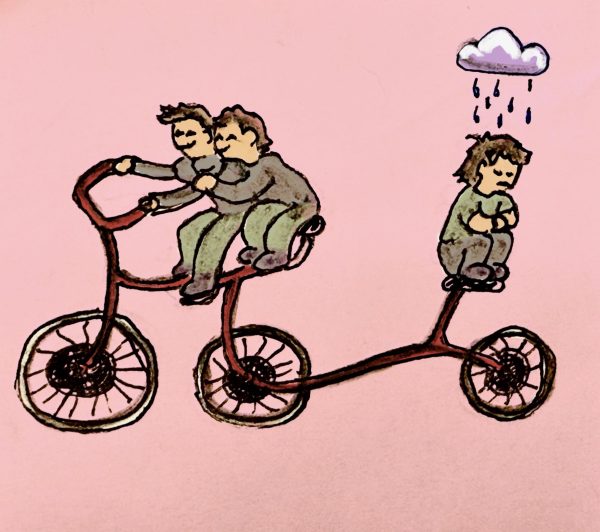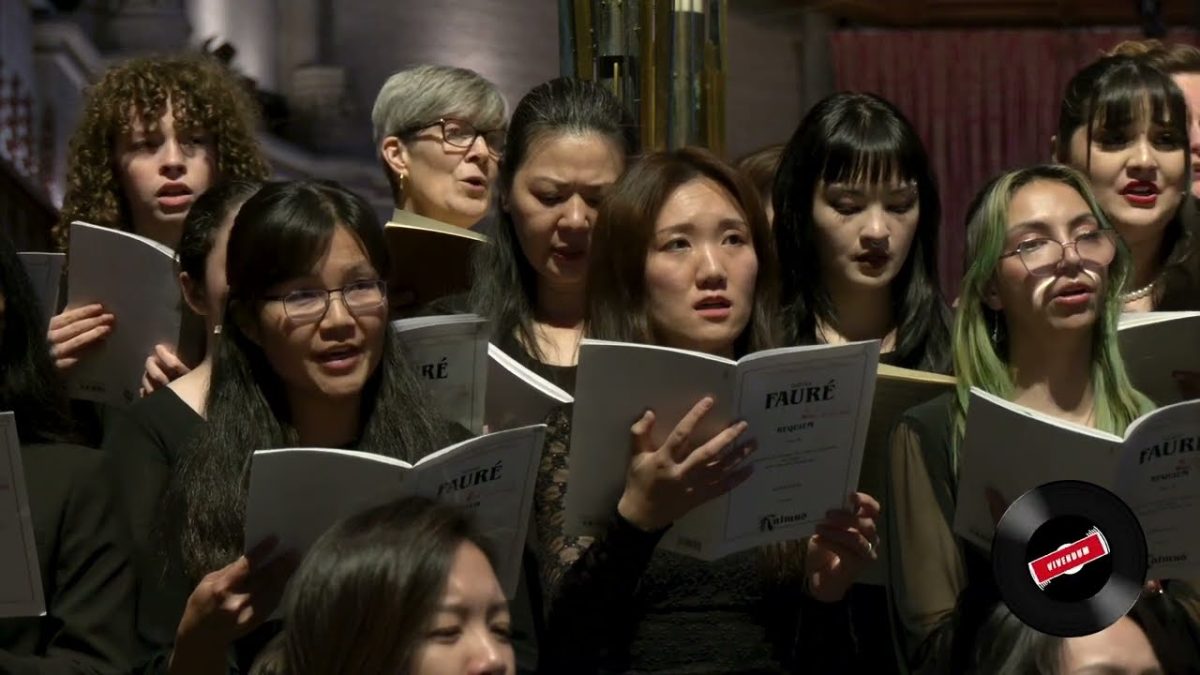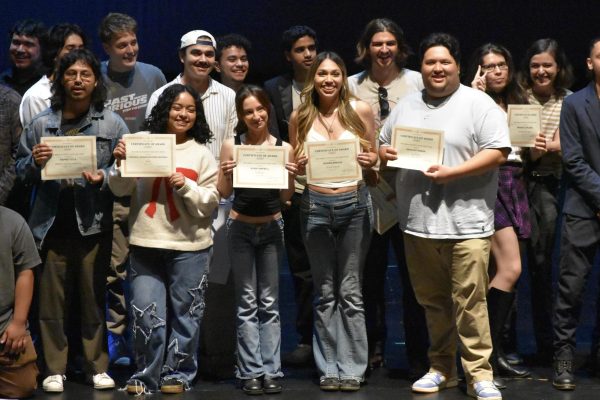Middle college student creates podcast to shed light on the STEM field and its opportunities
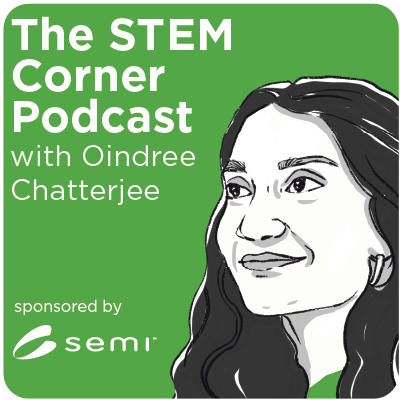
The cover of the podcast “The STEM Corner” hosted by Oindree Chatterjee. Source: Spotify.
June 24, 2022
With so many of us growing up in the Silicon Valley, STEM has become such a natural part of day-to-day life. It’s not just a group of subjects, but the lifeblood of the area and the building blocks of the economy — it’s commonplace, so it blends in.
After Oindree Chatterjee, 17, middle college student at De Anza and host of “The Stem Corner,” built her first cardboard robot at a three-day workshop with SeMI Technologies, she discovered that there may be more to STEM than what society perceives.
“The robot activity made me realize that I can do robotics because I was actually the only girl on my robotics team, my freshman year and I didn’t see that many girls on my team,” Chatterjee said.
Chatterjee said she views STEM as not something limited to engineering or medicine, but a broader subject that offers a variety of occupations — and one of the reasons behind her desire to begin a podcast on the subject.
“I realized that minorities and low-income students, already prior to the pandemic, already don’t receive as much exposure to STEM opportunities because their schools lack those resources that other welfare places receive,” she said.
Chatterjee is currently taking classes at De Anza, since her school only offers a limited number of math courses, and De Anza is able to offer more variety.
Chatterjee said she wanted to bring others onto this journey and give the opportunity to learn from experts in the field.
“I honestly love networking with people and meeting and seeing what they’re doing, and seeing if it appeals to myself,” Chatterjee said. “So another reason why I created the podcast was for me, and I decided that by creating a podcast, I could bring other people along on my journey.”
Shari Liss, Executive Director at SeMI Technologies, has been featured on “The Stem Corner” and said that working in STEM industries does not always require one to be a technical hard science candidate.
“The high-tech industry needs STEM folks as much as they need HR, marketing, and other professionals that make their organization work,” Liss said. “There are an incredible amount of career pathways and immense breadth and depth of opportunities in the STEM fields. I think we need to educate students on what’s possible.”
Chatterjee said that she hopes people can gain knowledge “by listening to speakers and top tech companies and industries and just learning about the diversity that stem has to offer.”
Chatterjee is currently working with SeMI Technologies alongside Liss by putting together kits for students to get some hands-on experience as Chatterjee once did before.
“We decided, why don’t we bring the workshops to students, so we provide kits to low-income schools with a lot of minority students and we provide those kits to teachers that they can implement into their curriculum themselves,” Chatterjee said.
Berton Mahardja, program manager at SeMI Technologies, said he thinks Chatterjee’s drive to help other students is outstanding as it is challenging work to do for students her age.
“She had a hands-on experience that made her feel like that was a good path for her, and she wants to make sure that other young folks get the opportunity to have those experiences to decide on their own if STEM may be right for them,” Mahardja said.
Despite the great opportunities she has encountered, Chatterjee said that gender gap and ethnic disparities are the two challenges she has either experienced herself or has witnessed.
“A lot of the times my ideas were downplayed and people would ignore me and they’d go with an idea someone else said and then finally, when their ideas didn’t really work they would come back to me,” she said.
Jamie Joseph, English professor at De Anza, said that Chatterjee had written about this issue for an essay.
“Oindree mentioned the sexism she faced as a leader for her high school robotics team. Unfortunately, this is still the reality for women in tech, especially in leadership positions,” Joseph said. “This industry has a long way to go, and Oindree is making great strides in illuminating this issue in her podcast. Her podcast is accessible and extremely relevant. It’s a gift of valuable insight for anyone interested in STEM.”
Chatterjee said she plans on continuing to bring on an impressive line of guests on her podcast and in the future would like to study robotics research.
“I really want to do robotics research, that’s what I see in my future. I also see myself continuing to work with SeMI Technologies and hopefully keep posting on my podcast as I meet new people,” Chatterjee said.










